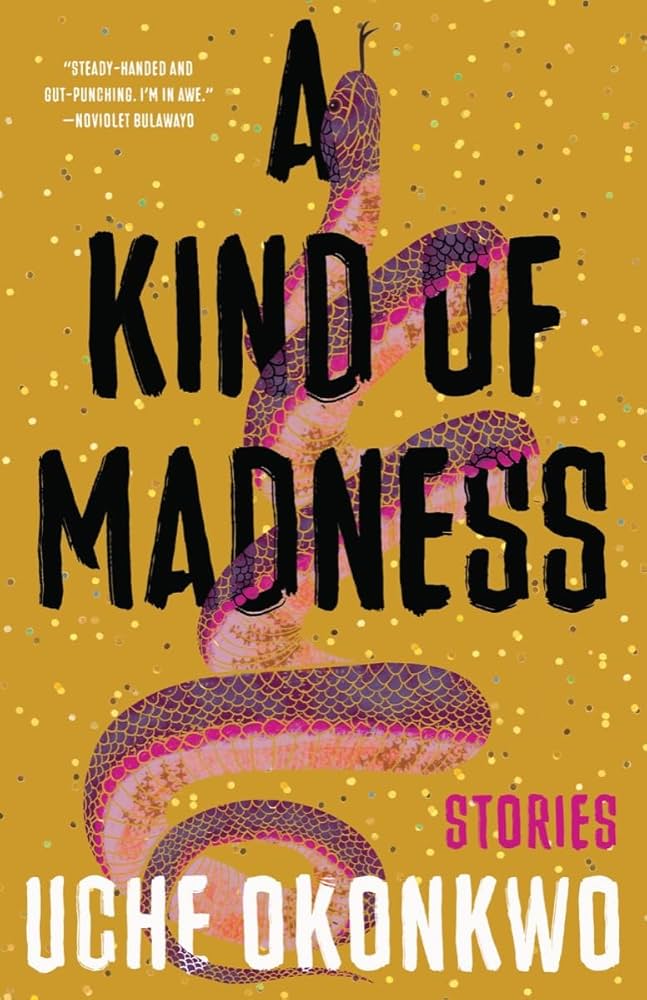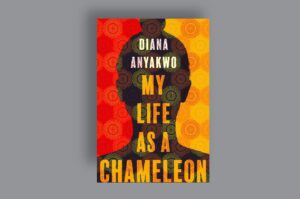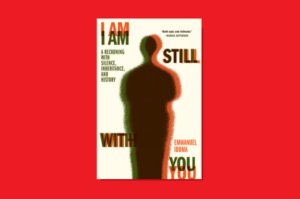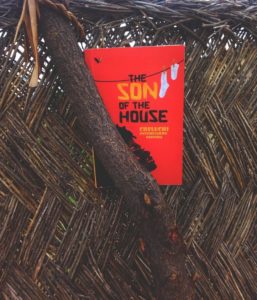
I didn’t know quite what to expect going into Uche Okonkwo’s debut book, A Kind of Madness, published in the US by Tin House Press earlier this year. I was ready for intense personal struggles and mental health challenges. But what I got was different, felt surprisingly relatable.
Uche Okonkwo’s A Kind of Madness is a debut that shows us how madness might be more universal than we think. The collection of stories reminds us that everyone, at some point, pushes against a world built on norms that often don’t make much sense.
The opening story, “Nwunye Belgium,” introduces us to Udoka, who breaks off an engagement to chase the chance to marry a man living abroad. But when her new relationship falls apart, her supposed “madness” is blamed. It’s a label that isolates her, marking her as undesirable simply because she doesn’t conform.
Then there’s “Shadow,” where a young boy’s longing for the attention of his uncle’s wife leads him to draw monstrous images of babies in his sketchbook. When she becomes pregnant, he feels threatened by the baby, fearing it will steal her love. After she loses the child, he faces the harsh reality that his desire for perfect love is impossible. In this story, madness is a kind of impossible longing—a desire the world can’t possibly meet.
In “Animal,” a boy named Nedu becomes attached to a one-eyed chicken named Otanya. His family initially humors him, but as his affection grows, they find it harder to kill the chicken. Eventually, the family comes together to chase and kill Otanya, and Nedu eats it—only to secretly vomit later. Madness here is a love that seems deviant—a caring that defies what’s deemed “normal.”
As a Nigerian reader, the term “madness” brings up for me culturally specific connotations. Madness in Nigeria is often a term for extreme deviance—someone who strays far from the norm, a person seen as incomprehensible or even otherworldly. I have in my mind also the term “raving mad”—madness as a spectacle of absolute otherness—the naked man or woman mumbling to themselves while roaming the streets or the marketplace. Madness, in this context, signifies the ultimate exclusion. You hear all of this in the classic Nigerian insult: “Are you mad?” as if to say that the worst possible thing to embody is to be beyond social acceptability.
What’s powerful about the book is how it challenges this idea of madness as extreme deviance. Madness might just be a universal experience, a response to living in a world defined by narrow norms. Her stories prompt us to question those norms and the pressure placed on things like desire, love, and belonging. Who defines these standards? And is there really a “normal” way to feel or to want? In a world that expects us to fit neatly into boxes, we end up being, deep down, a little mad. Is there any one out there who fits the boxes perfectly?
It’s not that we’re all mad, but that society’s obsession with rules and boundaries marks all of us as deviant in one way or another.
A Kind of Madness is the kind of book you start reading and suddenly lose track of time. I planned to read just one story but ended up leafing through half the book in one sitting. It’s that kind of quiet pleasure that sneaks up on you. I think it’s because Okonkwo writes with warmth, humor, and a light touch that makes even heavy themes easy to digest. Her characters—like the girl betting on the wrong man, the boy dreaming of new parents, or the mother who hesitates to kill her son’s beloved chicken—are vivid without being overdone. There’s everyday drama around love, friendship, and longing, but in Okonkwo’s hands, it all unfolds in a way that’s playful yet resonant.
Buy A Kind of Madness here.









COMMENTS -
Reader Interactions